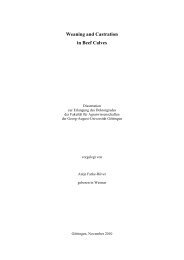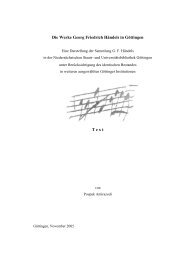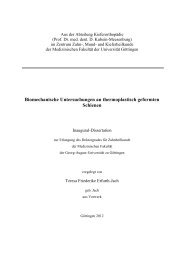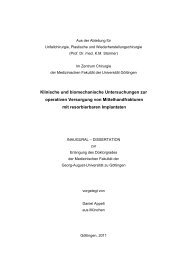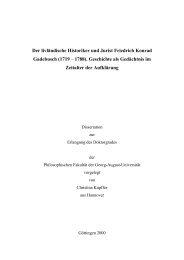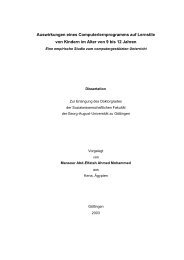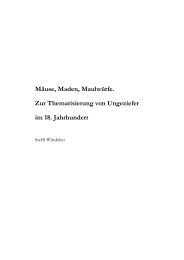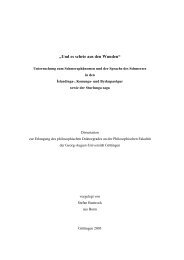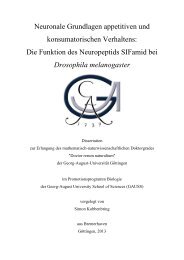Kausales Denken, Bayes-Netze und die Markov-Bedingung
Kausales Denken, Bayes-Netze und die Markov-Bedingung
Kausales Denken, Bayes-Netze und die Markov-Bedingung
Erfolgreiche ePaper selbst erstellen
Machen Sie aus Ihren PDF Publikationen ein blätterbares Flipbook mit unserer einzigartigen Google optimierten e-Paper Software.
164<br />
Sommerville, J. A. (2007). Detecting causal structure: The role of interventions in<br />
infants’ <strong>und</strong>erstanding of psychological and physical causal relations. In A.<br />
Gopnik & L. Schulz (Eds.), Causal learning: Psychology, philosophy, and<br />
computation (S. 48–57). Oxford: Oxford University Press.<br />
Spellman, B. A. (1996). Acting as intuitive scientists: Contingency judgments are<br />
made while controlling for alternative potential causes. Psychological<br />
Science, 7 (6), 337–342.<br />
Spirtes, P., Glymour, C. & Scheines, P. (1993, 2000). Causation, prediction, and<br />
search. New York: Springer.<br />
Steyvers, M., Griffiths, T. L. & Dennis, S. (2006). Probabilistic inference in human<br />
semantic memory. Trends in Cognitive Science, 10 (7), 327–334.<br />
Steyvers, M., Tenenbaum, J. B., Wagenmakers, E. J. & Blum, B. (2003). Inferring<br />
causal networks from observations and interventions. Cognitive Science,<br />
27, 453–489.<br />
Tenenbaum, J. B., Griffiths, T. L. & Kemp, C. (2006). Theory-based <strong>Bayes</strong>ian models<br />
of inductive learning and reasoning. Trends in Cognitive Science, 10<br />
(7), 309–318.<br />
Tenenbaum, J. B., Griffiths, T. L. & Niyogi, S. (2007). Intuitive theories as grammars<br />
for causal inference. In A. Gopnik & L. Schulz (Eds.), Causal learning:<br />
Psychology, philosophy, and computation (S. 301–322). Oxford: Oxford<br />
University Press.<br />
Waldmann, M. R. (1996). Knowledge-based causal induction. In D. R. Shanks, K. J.<br />
Holyoak & D. L. Medin (Eds.), The psychology of learning and motivation,<br />
Vol. 34: Causal learning (S. 47–88). San Diego, CA, US: Academic Press.<br />
Waldmann, M. R. (2000). Competition among causes but not effects in predictive<br />
and diagnostic learning. Journal of Experimental Psychology: Learning,<br />
Memory, and Cognition, 26 (1), 53–76.<br />
Waldmann, M. R. (2001). Predictive versus diagnostic causal learning: Evidence<br />
from an overshadowing paradigm. Psychonomic Bulletin & Review, 8 (3),<br />
600–608.<br />
Waldmann, M. R. (2007). Combining versus analyzing multiple causes: How domain<br />
assumptions and task context affect integration rules. Cognitive<br />
Science, 31, 233–256.



